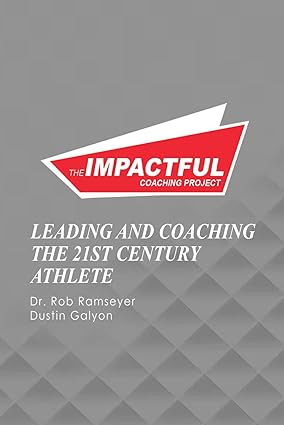The Power of 1 on 1's
Thank you all for your support of our work with the Impactful Coaching Project. We are starting to gain alot of subscribers on Substack and listeners on our podcast Beyond Coaching. One of my favorite parts of this endeavor has been some of the questions and conversations people have after reading a post or listening to a podcast. Don’t hesitate to reach out with your thoughts. And please continuing sharing with others!
In my recent podcast conversation with John O’Sullivan on the Way of Champion’s podcast, we touched on the importance of one-on-one meetings in building trust and relationships. John is someone I don’t know well but admire. He has written numerous books and has done over 400 podcast episodes with coaches and athletic leaders with the goal of making youth sport more healthy, positive, and rewarding for all involved. In our conversation about one-on-ones, he stated that it is a common thread of what high level coaches do well.
Below is one excerpt from our book talking about strategies for one-on-ones. I hope you find it helpful and consider purchasing out book——it is full of practical strategies like the stuff below.
One-on-one meetings between coaches and athletes are vital for fostering individual growth and development. These meetings allow for the development of personal relationships and also to learn how to coach individual athletes more effectively.
Here are some ideas that we have seen work in one-on-ones.
· Have a question to get to know one another: Stay away from sports and get to know one another. Use the 5 H’s, talk about family, or any other questions that you think will help you connect.
· Ask, “What do I not know that I don’t know?”: This question gives the athletes opportunities to share about any individual or team issues that they may not be aware of. Finding out what you don’t know is key to staying ahead of issues and leading your team well.
· Sport/School Related Issues: Near the end of the meeting, it is ok to get to “business” regarding sport or school. However, do not start here to show you care about getting to know the athlete and their personal development.
· “Ask me a question”: This works particularly well for high school and young college student-athletes. At the end of the meeting, have them ask you a question about life (within reason, of course). Tell them you’ll be transparent and hopefully provide them insight into who you are and also maybe provide some “inexpensive” life experience for them.
One of the most important parts of these one-on-one meetings is to simply be quiet. Don’t be afraid of silence and be the listener more than the talker as much as possible.
Check out our book!
Things That Are Making Us Think
A long read but a worthwhile read. My new friend John Kessel recently sent me an old article called “Decisions, Decisions”. It looks at our decision making processes and how we can improve performance and decision making.
A few quotes on Leadership from Marshal Goldsmith (via
)Leadership is a relationship, not between the coach and the “coachee,” but between the leader and the colleague.
Our studies show that leaders who regularly ask for input are seen as increasing in effectiveness.
Real leadership development involves a process that occurs over time, not an inspiration or transformation that occurs in a meeting





